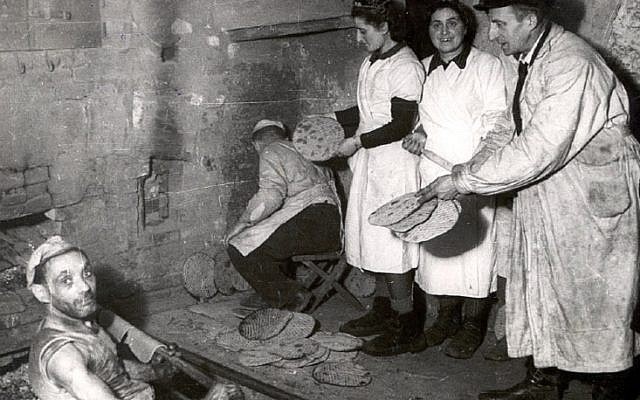
I know that it’s on everyone’s mind. I know that it’s being discussed in homes all across the United States, Israel, and around the world. It’s out there and it’s coming quickly – the annual celebration from slavery to freedom – Passover. As always during this season there are tremendous parallels to be found between the Biblical story of the coming forth from Egypt and the Holocaust. And this year, more than ever, these parallels are so very poignant.
This marks the third week of my recurring thoughts on the COVID-19 pandemic and the lessons we can learn from the Holocaust. And as it is one week until the first Seder, let’s just put it all out there – Passover, during an international pandemic, while we are under quarantine and in our homes, will be different. Different, strange, a bit frightening, and probably a little sad, but nonetheless it will be Passover and we will be free to observe it.
When the Jews were trying to observe Passover in concentration camps, in ghettos, and while in hiding during the Holocaust, the very core of who they were – their Judaism – was being taken from them. They hung onto any shred of their remaining Jewishness. They did whatever they could – from having a child whisper the Four Questions in hiding, to passing on the stale bread and only eating their soup rations at the death camp of Majdanek, to holding a secret Seder just prior to taking up arms on the eve of Passover in 1943 in the Warsaw Ghetto. These Jews were determined be Jewish, for Judaism to survive. And that meant celebrating Passover however they could.
So while I can see so many parallels between now and then, the main difference is staggering! It is a constant reminder that we are free to observe Passover and to be Jewish, and that no one is telling us otherwise. The only roadblock is that we need to stay home, either celebrating Pesach with just our immediate family or choosing to connect with others virtually. There are so many wonderful options out there. You can find many of them here on our Federation Virtual Passover webpage.
The Coronavirus is not the Nazi regime. It can’t stop any of us from enjoying a Seder or refraining from eating chametz, from searching for the Afikoman or cleaning the entire kitchen and changing dishes. It can’t stop us from being Jewish, you just have to do it while staying at HOME.
This may be a challenge for many of us. Personally, my family has never had a Passover Seder without grandparents, aunts, uncles, cousins, and friends. But this year we will NOT be together for Seder. It’s our obligation to continue our practice of social distancing. For the sake of the Holocaust survivors and all those who are in isolation because of their age, for the entirety of the Jewish community, and for the world as a whole right now, please do not have large group gatherings to observe Passover. Staying at home is our way to survive this – it’s our way to be Jewish.
While I will probably shed a few tears this year over all the traditions we’ll be missing, I will remind myself at how fortunate I am to be able to celebrate freedom. And although we will be physically apart, we can all say from our OWN HOMES, next year may we be in Jerusalem, next year may we be TOGETHER.

